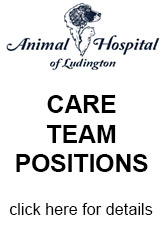 Mental Health Matters: Who to call during a mental health crisis
Mental Health Matters: Who to call during a mental health crisis
By Alan Neushwander, West Michigan Community Mental Health.
It can be difficult to experience a mental health crisis or to watch someone you love go through it. It may feel like there aren’t any solutions and you may not know what to do during a crisis. It’s important for you to know that you are not alone. Solutions do exist and resources are available locally.
Having feelings of anxiety, depression, fear, anger, suicide, thoughts of self-harm, or harming others is nothing to be ashamed of. Over 47 million Americans are currently experiencing a mental illness, which equates to one in five people.
The World Health Organization defines mental health as a state of wellbeing in which the individual recognizes his/her own potential, can cope with the normal stresses of life, work productively and fruitfully, and is able to contribute to his/her community.
Despite the behavioral health care people may be receiving, there can be times when a person’s state of mind renders them unable to cope with or adjust to the everyday stresses of life. This is when a mental health crisis can occur.
As part of being a Certified Community Behavioral Health Clinic, West Michigan Community Mental Health is able to provide crisis stabilization services 24 hours a day, seven days a week. When someone in Mason, Lake or Oceana counties is experiencing a mental health emergency, is in emotional distress, expressing thoughts of suicide, experiencing behaviors that places his/herself at risk of harming self or others, is having trouble coping independently, or just doesn’t know what else to do, they can call the crisis stabilization hotline at 1-800-992-2061.
When someone calls the hotline, they are triaged and connected to a trained mental health clinician who conducts an assessment and discusses interventions. We will provide immediate access to mental health care to connect people with the resources they need to stay safe and return to their regular level of functioning. If needed, our mobile crisis stabilization team will respond directly to the location where service is needed, whether it’s at your home, work, school or anywhere within our service area. The mobile crisis response team consists of two trained individuals – a licensed clinician and a peer support specialist. This team responds to assist adults, children and families with face-to-face intervention to further assess risk, deescalate the situation, provide crisis therapy, conduct safety planning, and connect those in crisis to appropriate community resources. The goal is to ensure the client is safe and to prevent unnecessary hospitalization and emergency room visits by stabilizing the crisis in the most normalized, least restrictive setting.
“When someone is feeling overwhelmed or having thoughts about harming themselves, they or their loved ones may not know what to do,” said Jamie Conger, LMSW, crisis stabilization services coordinator at West Michigan CMH.
“Each year, we receive nearly 500 crisis calls. This service is available to anyone in our community regardless of what insurance they may have or their ability to pay. You don’t have to be a current CMH client to use this service, either. We are here to help anyone who is in crisis.”
An example of a crisis stabilization call received by West Michigan CMH was from a community member who called the 24-hour hotline at 2 a.m. on a Saturday. The caller was experiencing several situational stressors which resulted in poor sleep, emotional distress, worry and passive suicidal ideation. The mobile crisis team was dispatched to the caller’s home where they provided face-to-face individualized care, including crisis therapy and safety planning.
“By calling our crisis stabilization hotline, the person was able to avoid an ER visit and likely prevented an inpatient psychiatric hospitalization,” said Josh Snyder, LPC, CAADC, CCS, chief clinical officer at West Michigan CMH. “If she wouldn’t have called us, she would’ve suffered in silence.”
The 24-hour mental health crisis stabilization hotline is 1-800-992-2061.
Alan Neushwander is the Director of Public Relations and Customer Service at West Michigan Community Mental Health. He may be reached by calling (231) 843-5440 or email alann@wmcmhs.org.



























.jpg)














.png)

















